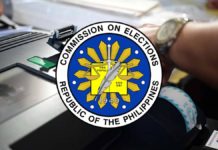
WHY WAS police colonel Hector Grijaldo invited to the Senate blue ribbon committee hearing last week?
Grijaldo does not figure in the roster of personalities that the International Criminal Court is investigating with an eye towards arrest and prosecution.
That elite list so far includes only Sen. Ronald “Bato” Dela Rosa, former police commissioner Edilberto Leonardo, former police chief Oscar Albayalde, former Criminal Investigation and Detection Group chief Romero Caramat Jr., and former PNP chief intelligence officer Eleazar Mata.
***
The perceived ring leader is none other than former President Rodrigo Duterte. So, why was Grijaldo in the Senate? He was the Mandaluyong City police commander when Philippine Charity Sweepstakes Office board secretary Wesley Barayuga was gunned down in July 2020.
Aside from the fact that the police had bungled its investigation into Barayuga’s assassination, Grijaldo does not at this time stand out as a useful witness to establish culpability in Duterte’s drug war.
That flagship program arguably holds the international gold standard in organized extermination. That “war” had more than 6,000 dead in self-defense or “nanlaban” cases, and more or less 20,000 dead from executions perpetrated by “vigilante” assailants.
***
Grijaldo was present in the Senate hearing quite obviously upon Dela Rosa’s behest.
The former police chief tried to chair the inquiry, but his importunings were blunted by Senate President Chiz Escudero who preferred the more disinterested Koko Pimentel to referee the potential melee.
The apparent concession was the leeway granted to the senators in extending invitations to witnesses. Grijaldo clearly got invited for the bombshell revelation that he was expected to detonate.
***
Grijaldo told senators that he was pressured by congressmen into affirming portions of Royina Garma’s affidavit that allude to the cash reward system that allegedly oiled Duterte’s war on drugs.
Is this being presented as an irregularity because congressmen supposedly should not talk to witnesses?
Is there anything in their rules that prohibit legislators from discussing the committee agenda with their resource persons?
***
Neither camp is citing any rule. Even the police are encouraged to interview witnesses to solve crimes.
The better, more precise question should be: did congressmen actually place Grijaldo under duress? The simple fact that he has not signed any affidavit reciting the allegations that the congressmen purportedly wanted him to say indicates that he was not coerced to make admissions against his will.
Grijaldo is a public servant and a high-ranking police official. There is a much greater expectation of cooperation from him, especially that the subject matter of the inquiry involves the people’s right to life and liberty.
***
Was Grijaldo afraid that he would accidentally admit to the commission of a crime?
Meetings of this nature are not custodial police investigations where the absence of counsel might render inadmissible certain admissions or confessions made during the interview.
Or was the intention to clip the wings of the House quad comm that has lately been uncovering sordid details of the drug war?/PN







